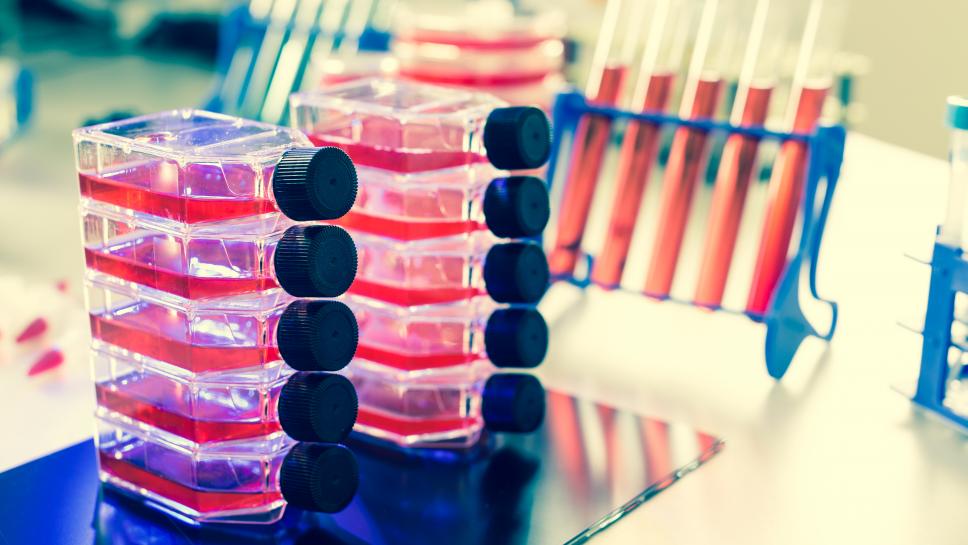
A study from MDUK-funded researchers at University College London (UCL) and Royal Holloway University of London (RHUL) has been published in the scientific journal, EMBO Molecular Medicine.
Dr Francesco Saverio Tedesco from UCL worked in collaboration with Dr Linda Popplewell and Prof George Dickson from RHUL to develop an artificial chromosome containing the entire dystrophin gene. This was delivered into muscle stem cells from people with Duchenne and led to an increase in dystrophin production.
The dystrophin gene is one of the largest genes in our bodies, so is challenging to incorporate into a gene therapy. Artificial chromosomes overcome this problem as they have a much larger capacity than other vectors, such as adeno-associated viruses (AAVs).
In addition to dystrophin, the artificial chromosome in this study also contained genes that extended the life of the muscle stem cells. This helped to ensure that there were enough cells for transplanting, which is often a problem in cell therapy trials. The researchers also included other genes in the artificial chromosome for safety purposes. For example, there were 'suicide' genes that could be triggered if the cells started to grow out of control and risked becoming cancerous.
This sort of genetic and cell-based approach is often referred to as 'ex vivo' gene therapy. This is because the genetic correction takes place outside the body (ex vivo), in cells grown in the laboratory. These cells are then multiplied and injected back into the patient. In vivo gene therapy is when the genetic correction takes place inside the body (in vivo). For example, when a virus carrying a healthy copy of a gene is injected directly into a patient.
Dr Tedesco, who led the study, said:
Our recently published study demonstrates the principle of using Human Artificial Chromosome (HAC) technology as an ex vivo gene therapy for Duchenne muscular dystrophy. Notably, this strategy is not mutation-specific and therefore could be applicable to virtually all dystrophin mutations, including large deletions and those causing Becker muscular dystrophy. Although more research is needed to increase the efficiency of HAC-mediated genetic correction and to deliver the corrected cells to large areas of affected muscles, this work provides a foundation for future clinical development.
Further information
Read more about the study in this press release from RHUL
Find out about Dr Tedesco’s MDUK-funded project
Learn more about ex vivo gene therapy by watching this video
